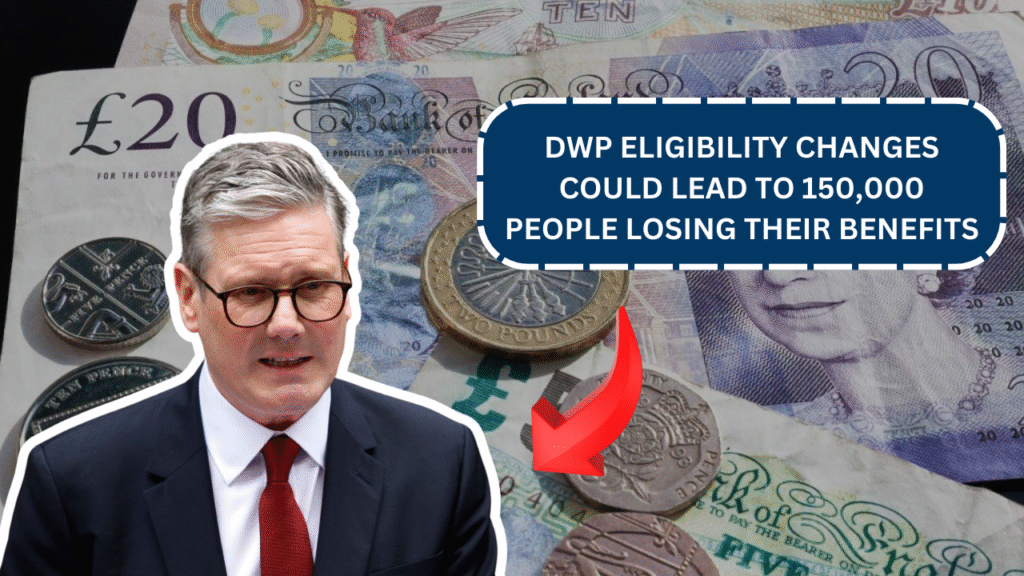The UK government’s proposed changes to disability benefits, particularly Personal Independence Payment (PIP), are set to impact hundreds of thousands of individuals across the country. As the Department for Work and Pensions (DWP) tightens eligibility requirements, an estimated 150,000 people may soon find themselves losing vital benefit payments. This article explores who will be most affected by these changes and what the potential consequences are.
The DWP Eligibility Change: Who Will Be Affected?
The planned changes to PIP eligibility and other disability-related benefits are part of the government’s broader strategy to reduce the welfare bill by £5 billion by 2029–30. The adjustments are designed to address the growing costs of disability benefits but are expected to have a significant impact on those who rely on these payments for their daily living.
1. Unpaid Carers Set to Lose Support
The first group likely to be hit hardest by the changes are unpaid carers. Around 150,000 carers currently receiving the £81.90 per week Carer’s Allowance or the £198.31 per month Universal Credit (UC) carer element may lose their financial support. These benefits are tied to the eligibility of the person they care for, who must be receiving qualifying benefits like PIP. As the government alters the criteria for these benefits, many carers will no longer meet the eligibility requirements.
2. Stricter Criteria for PIP Eligibility
Another major change is the tightening of eligibility criteria for PIP, which is set to affect those with chronic conditions. Starting in November 2026, PIP applicants will need to score at least four points in specific daily living activities such as preparing food, dressing, or washing. This change is expected to impact around 1.3 million working-age PIP claimants, particularly those with long-term conditions like arthritis, back pain, and chronic pain.
3. Older Claimants to Bear the Brunt
Data from a recent Freedom of Information request indicates that the majority of those set to lose support under the new criteria are older claimants. Nearly 70% of individuals who will lose PIP Daily Living support are over the age of 50, with a significant number being over 60. This is particularly concerning as many older individuals may face increased challenges accessing alternative financial support.
4. Younger Claimants and New Applications Also Impacted
The changes will also affect younger claimants. Starting in April 2026, new claimants of the UC health element will receive only half of the current rate (£416.19 per month). Furthermore, individuals under 22 years of age will no longer be eligible for this support, significantly impacting younger disabled people.

What Are the Potential Consequences?
The government has argued that these changes are necessary to control the rising costs of welfare spending. However, the potential consequences of the reforms are troubling, particularly for those who will lose access to crucial financial support.
1. Increased Poverty and Financial Strain
It is estimated that the welfare reforms will push an additional 250,000 people, including 50,000 children, into relative poverty by 2029–30. Some individuals may lose more than £9,000 annually in support, excluding housing benefits. This could result in increased financial strain for vulnerable families, making it more difficult for them to cover basic living expenses.
2. Loss of Access to Local Support Systems
In addition to financial losses, those affected by the cuts could lose access to other critical support systems. Many local councils prioritize housing assistance for individuals receiving disability-related benefits, and the proposed changes could disqualify many people from priority housing lists. This could exacerbate housing insecurity and homelessness for individuals who already face significant barriers to stable housing.
3. Impact on Health and Wellbeing
The cuts to benefits may also have serious repercussions on the health and wellbeing of individuals with disabilities. Financial stress is known to have negative effects on mental and physical health, and losing access to disability benefits may make it harder for individuals to afford necessary medical care or assistive devices. This could lead to a decline in overall health and quality of life for many people who are already struggling with chronic conditions.
Government Response to Criticism
The government’s proposed reforms have sparked widespread criticism, particularly from Labour MPs and disability advocacy groups. Over 100 Labour MPs have indicated they may vote against or abstain on the changes, signaling significant opposition within Parliament. Some MPs have called for a re-evaluation of the policy, arguing that it unfairly targets the most vulnerable members of society (ft.com).
In response to public outcry, the government has suggested that transitional financial support may be provided to carers who lose their allowances. However, Prime Minister Sir Keir Starmer has ruled out reversing the cuts to winter fuel payments or other welfare reforms, asserting that they are necessary for economic stability.
Conclusion
The DWP’s planned changes to benefit eligibility could have serious consequences for over 150,000 people who rely on financial support. From unpaid carers to individuals with chronic conditions, these reforms will affect a wide range of vulnerable groups across the UK. While the government defends the changes as necessary for reducing welfare costs, many are concerned about the increased poverty, housing insecurity, and health risks these cuts may cause. With a vote on the new eligibility criteria coming in June, the debate over these reforms is far from over.



